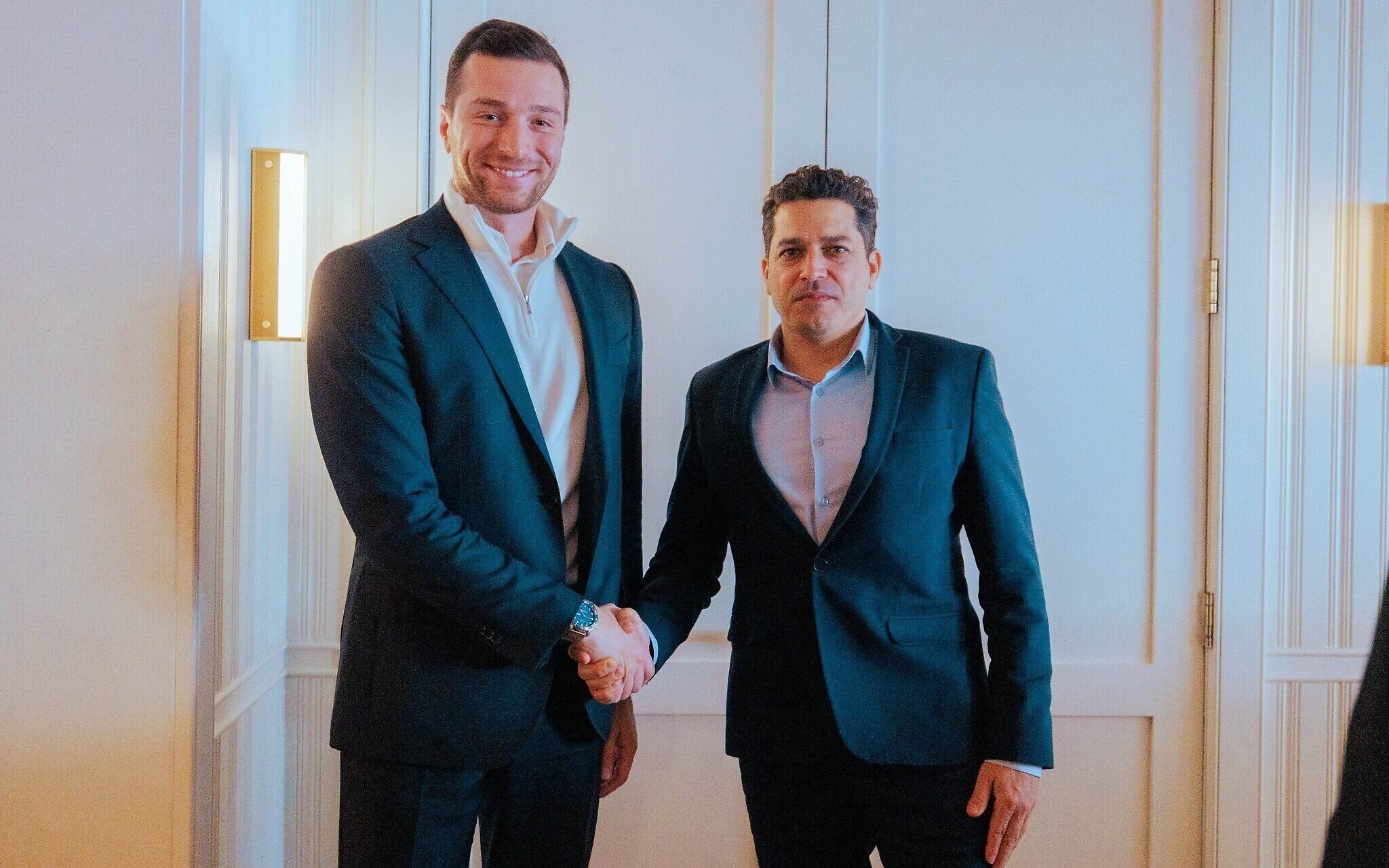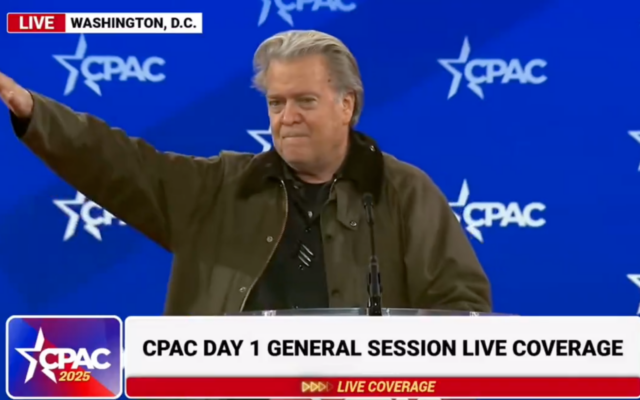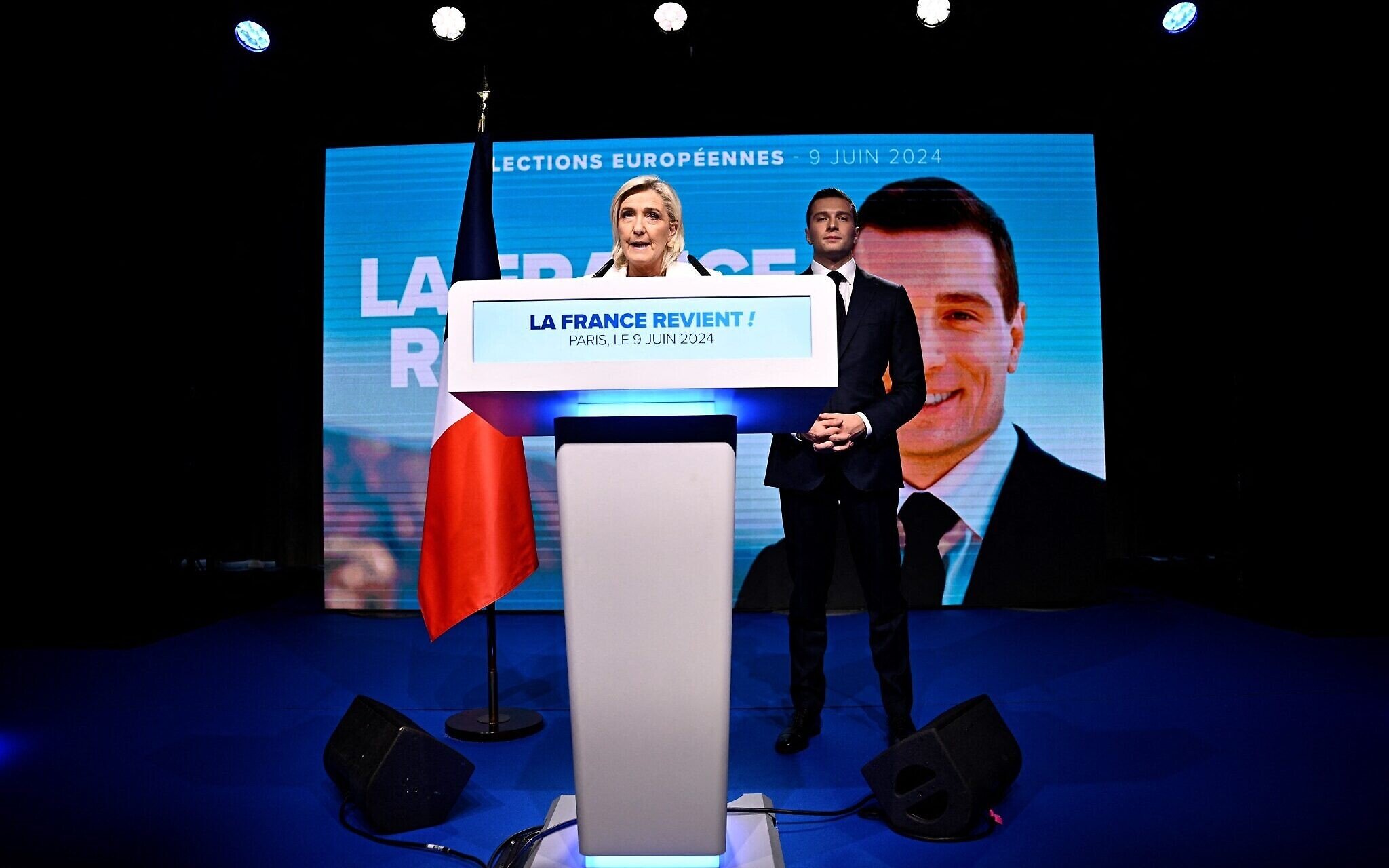



Diaspora Minister Amichai Chikli met with French far-right leader Jordan Bardella in Washington on Friday, further upending Israel’s longstanding boycott of France’s National Rally party, which was founded by a Holocaust denier and is opposed by the majority of French Jews.
Bardella said on X that he and Chikli held “fruitful discussions” on “Franco-Israeli relations, the international fight against Islamic terrorism and antisemitism, and future joint projects with Patriots for Europe,” the European Union parliamentary bloc that includes NR and far-right parties from Austria, Hungary, and the Netherlands.
Israel’s ruling Likud party, which counts Chikli as a member, joined the bloc as an outside observer earlier this month. Bardella serves as the bloc’s chairman.
Chikli and Bardella met while attending CPAC, an annual right-wing conference in Washington. The conference provoked controversy when Steve Bannon, a former adviser to US President Donald Trump, appeared to give a Nazi salute at the end of his speech on Friday.
Bardella subsequently canceled his planned speech. Without naming Bannon, he said that “while I was not present in the room, one of the speakers allowed himself, as a provocation, a gesture referring to Nazi ideology.”
Bannon denied he had made a Nazi salute, telling a French journalist it was a “wave.” He said that if Bardella is “that worried about it and wets himself like a little child, he’s unworthy to lead France.” Chikli has not commented on Bannon’s gesture.
The diaspora minister has worked to strengthen ties with European far-right parties, which Israel had long boycotted due to their association with Nazism, and amid strained ties between Israel and France.
In June, days before the French legislative election, Chikli approvingly shared a video of Bardella — then NR’s candidate for prime minister — rejecting a two-state solution to the Israeli-Palestinian conflict.
The following week, Chikli said NR leader Marine Le Pen is “excellent for Israel.” Chikli had met with Le Pen in May at a Madrid conference organized by the Spanish far-right party Vox, also a member of Patriots for Europe.
Following Chikli’s endorsement of Le Pen, French President Emmanuel Macron complained to Prime Minister Benjamin Netanyahu that the diaspora minister was interfering in France’s internal politics.
NR, formerly known as National Front, was founded in 1972 by Le Pen’s late father Jean-Marie, who had been repeatedly convicted of antisemitic hate speech, and by Pierre Bousquet, a former commander in the Nazi Party’s Waffen-SS.
Since Marine Le Pen took the helm in 2011, she has attempted to scrub the party’s past and win mainstream acceptance. She distanced herself from her father’s antisemitic rhetoric and expelled him from the party in 2015. Meanwhile, she has honed in on Muslims — who make up 11 percent of the French population — as a threat to the country.
But even as Marine Le Pen has publicly denounced antisemitism, her supporters still disproportionately harbor antisemitic attitudes, according to some experts.
Under her leadership, NR has become France’s largest parliamentary party, and Le Pen is widely seen as the frontrunner to be France’s next president in the 2027 election.


